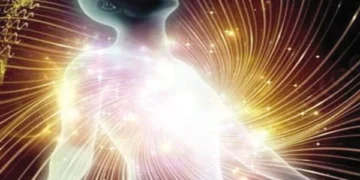Written by: Abdul Basit Alvi
Azad Jammu and Kashmir (AJK), also known as Azad Kashmir, has a distinct political and constitutional position within Pakistan, a status shaped by historical factors, particularly the Kashmir dispute. This unique status is enshrined in Pakistan’s Constitution and arises from a blend of historical agreements, legal instruments, and constitutional provisions that grant AJK a certain degree of autonomy.
The special status of AJK can be traced to the partition of British India in 1947 and the ensuing Kashmir conflict. After the Maharaja of the princely state of Jammu and Kashmir acceded to India against the will of the people, it sparked a conflict that led to the first India-Pakistan war in 1947-48. Since then, the region has remained at the heart of a long-standing dispute between the two countries. The area of Jammu and Kashmir that came under Pakistan’s control is known as Azad Jammu and Kashmir (AJK), while the other portion, illegally occupied by India, is called Occupied Jammu and Kashmir. Following the Kashmir war and a ceasefire agreement brokered by the United Nations in 1948, Pakistan assumed control of AJK and established a political system in the region distinct from that of its other provinces.
The special status of AJK is largely defined by the Azad Jammu and Kashmir Interim Constitution Act of 1974, which outlines its governance framework and its relationship with Pakistan. Though the Constitution of Pakistan does not provide detailed references to AJK, it includes several provisions that touch on its political and constitutional position. In Article 1, the Constitution of Pakistan recognizes AJK as a special territory, along with Gilgit-Baltistan, within Pakistan’s territorial framework, though it is not considered a full-fledged province.
Article 257 of the Pakistani Constitution addresses the legal relationship between Pakistan and Jammu and Kashmir, stating that the region’s final status is to be determined by a plebiscite in accordance with United Nations Security Council resolutions. This article also reaffirms Pakistan’s commitment to supporting the people of Jammu and Kashmir in their pursuit of self-determination. While this affirms Pakistan’s claim over the region, it also allows AJK a certain level of autonomy within the broader structure of Pakistan.
Article 45 of the Constitution, which grants the President of Pakistan the power to grant pardons, is also relevant to AJK’s legal framework. However, because of the constitutional distinction between Pakistan and AJK, the President’s powers are confined to matters under federal jurisdiction. AJK operates with its own political leadership, including a President, Prime Minister, and legislative assembly.
In addition to the Constitution of Pakistan, AJK is governed primarily by the Azad Jammu and Kashmir Interim Constitution Act, 1974. This law establishes an autonomous government with its own President, Prime Minister, and Assembly, while ensuring the protection of the rights and freedoms of AJK’s people. It also acknowledges that the region’s ultimate status is tied to the resolution of the Kashmir dispute. AJK’s legislative assembly has the authority to legislate on most matters within the region, except for those relating to defense, foreign affairs, and other federal matters under Pakistan’s jurisdiction. The Prime Minister of Azad Jammu and Kashmir, appointed by the Legislative Assembly, heads the executive branch in AJK. AJK also has its own President, who acts as the ceremonial head of state. The region possesses an independent judiciary that operates within the framework established by the Azad Jammu and Kashmir Interim Constitution Act, 1974. AJK’s judicial system includes its own high court, which oversees cases within the region. Although AJK enjoys considerable autonomy, it maintains strong connections with Pakistan, especially regarding defense, foreign affairs, and constitutional issues. The Constitution of AJK and the Azad Jammu and Kashmir Interim Constitution Act of 1974 outline the nature of the region’s relationship with Pakistan, wherein Pakistan maintains control over key national issues, while AJK enjoys considerable autonomy in its domestic governance.
Although Azad Jammu and Kashmir (AJK) is a self-governing region with its own political institutions, it is closely integrated into Pakistan’s political and legal framework. The governance, development, and freedoms within AJK are influenced by its unique status within Pakistan. Despite its autonomous status, AJK receives support from Pakistan in several areas, such as economic development, infrastructure, education, healthcare, and political freedoms.
The Azad Jammu and Kashmir Interim Constitution Act, 1974, grants the region substantial autonomy, including its own political system and legal framework. However, certain issues like defense, foreign policy, and constitutional amendments remain under the control of Pakistan’s federal government. Within this framework, Pakistan plays a significant role in supporting the region’s development and ensuring essential liberties for its people.
One of the core freedoms afforded to AJK by Pakistan is political autonomy. As per the Azad Jammu and Kashmir Interim Constitution Act, 1974, the region has its own political structure, separate from Pakistan’s federal system. This allows AJK to manage its internal affairs independently, except for national matters such as defense and foreign policy. The Legislative Assembly of AJK is elected through democratic elections and has the authority to legislate on various issues, including education, healthcare, infrastructure, and social welfare.
The executive authority in AJK rests with the Prime Minister, who is elected by the Legislative Assembly, while the President of AJK holds a ceremonial role. This parliamentary system ensures political freedom and self-determination for the region, focusing on democratic governance and representation.
AJK also has an independent judiciary with its own Supreme Court and Court and High Court, operating under the region’s constitutional framework. The judiciary safeguards individual liberties and ensures justice for the people of AJK.
AJK has a rich cultural heritage, with unique music, dance, art, and traditions. Pakistan encourages the preservation of these cultural aspects, which are central to the identity of AJK’s people. The region’s autonomous governance allows for the promotion of local languages, customs, and cultural expressions. Additionally, AJK enjoys freedoms related to expression and the press. Although the region is governed by Pakistan’s laws, it has its own local media that operates independently, covering political, social, and cultural issues specific to AJK. Journalists in AJK have the right to report on matters of public interest. Local newspapers, television channels, and online platforms operate within the region, offering a space for political discourse, debate, and the exchange of ideas. This plays a vital role in shaping the political climate, ensuring that the population remains informed and actively engaged in the democratic process. Citizens of AJK are free to express their views on political, social, and cultural issues without fear of censorship. The regional political system ensures that individuals and organizations in AJK can engage in public discourse and advocate for their rights. Pakistan has consistently supported AJK’s economic development through various funding initiatives, federal investments, and infrastructure projects. Over the years, the federal government has focused on modernizing AJK’s economy, improving critical infrastructure, and raising the standard of living for its people.
Pakistan allocates substantial funds to AJK through federal development budgets, which are used for various projects such as road construction, energy infrastructure, and water supply systems. These funds are distributed in a manner similar to the federal allocations for Pakistan’s provinces. Notably, Pakistan has made significant improvements to AJK’s transportation infrastructure, particularly after natural disasters like the 2005 earthquake. Roads linking major cities within AJK and routes to other parts of Pakistan have been expanded and modernized, boosting connectivity, trade, and mobility, which are crucial for the region’s economic growth.
AJK, rich in water resources, has seen heavy investment in hydropower projects, with the Mangla Dam—one of Pakistan’s largest reservoirs—located in the region. This partnership has not only contributed to Pakistan’s power generation but also created jobs and supported local industries in AJK.
Education and healthcare in AJK have also been prioritized by Pakistan. Through federal funding and development programs, both sectors have seen significant improvements. Pakistan has invested in building schools, colleges, and universities in the region, including the Azad Jammu and Kashmir University (AJKU) in Muzaffarabad, which is one of the region’s leading institutions. The federal government offers scholarships, faculty exchange programs, and educational grants for students from AJK to pursue higher education in Pakistan.
Pakistan has also helped develop healthcare services in AJK by constructing hospitals, clinics, and healthcare centers to ensure the population has access to quality care. Moreover, the training and capacity-building of healthcare professionals in the region have been enhanced, improving medical standards.
Following the 2005 earthquake, Pakistan played a central role in the reconstruction of AJK, rebuilding homes and restoring essential infrastructure. The disaster left many people homeless and caused widespread damage, but the federal government led large-scale rehabilitation efforts, including the construction of new housing, the restoration of schools and hospitals, and the provision of emergency relief.
Additionally, AJK has benefited from various social welfare programs initiated by Pakistan, such as the Benazir Income Support Program (BISP), which provides financial aid to low-income families in the region. Other initiatives focus on the welfare of women, children, and marginalized communities in AJK, ensuring they have access to healthcare, education, and financial assistance.
In contrast, the constitutional status of IIOJK was distinct within the Indian Union for many years. Prior to the revocation of Article 370 in August 2019, the region was governed by a unique set of provisions that granted it a special status compared to other states in India. These provisions were primarily embodied in Article 370 and Article 35A, which were designed to reflect the unique political and historical context of the region. Article 370 was the foundation of Jammu and Kashmir’s special status under the Indian Constitution. It was a temporary provision that played a crucial role in shaping the state’s relationship with the Indian Union. Adopted as part of the Instrument of Accession in 1947, it was signed by Maharaja Hari Singh, the ruler of Jammu and Kashmir, when the state acceded to India after partition. Article 370 acknowledged the exceptional circumstances of IIOJK and allowed the state to retain autonomy in many areas, except for defense, foreign affairs, finance, and communications, which remained under Indian government jurisdiction.
Article 370 granted IIOJK special status, permitting the region to have its own constitution, flag, and a significant degree of self-governance. The state was governed by the Constitution of Jammu and Kashmir, with the Indian Constitution applying only in matters explicitly agreed upon by the state government. The Indian Constitution’s provisions were implemented in IIOJK only in areas that the state’s government accepted, as outlined in the Presidential Order of 1950, which modified the application of Indian laws to the region. For example, the Indian Parliament could legislate on matters related to IIOJK only with the approval of the state government.
Although Article 370 was initially intended as a “temporary” provision to ensure IIOJK’s special status until its future was determined, it eventually became a permanent feature of the Indian Constitution. The article stipulated that the provisions of the Indian Constitution would apply to IIOJK only with the consent of the state government. Any amendment to Article 370 could only be made by the President of India, but such amendments required the state government’s approval, which acted as a safeguard for the region’s autonomy. Over time, however, several amendments to Article 370 were made, gradually diminishing IIOJK’s autonomy.
Article 35A, introduced through a Presidential Order in 1954, granted special rights and privileges to the permanent residents of IIOJK, as defined by the state government. This article was directly linked to Article 370 and further solidified IIOJK’s special status. Article 35A enabled the state legislature to determine who would be considered a permanent resident and granted these residents exclusive rights in areas such as employment, property ownership, and educational opportunities. For instance, only permanent residents of IIOJK could own land in the state and were eligible for reserved government jobs.
The provisions of Article 35A aimed to preserve the region’s demographic and political autonomy by protecting the rights of the local population from external influences, ensuring that the state’s resources and employment opportunities were primarily available to its residents. A key provision under Article 35A was the prohibition on outsiders (those not defined as permanent residents) from purchasing property in IIOJK, which helped maintain the region’s demographic balance and safeguard the economic interests of local Kashmiris. Furthermore, certain government jobs in IIOJK were exclusively reserved for permanent residents.
Article 35A reinforced the concept of “separateness” for IIOJK, limiting its integration with the rest of India. By offering special privileges to permanent residents, it entrenched the idea that IIOJK was distinct from the rest of the country in terms of legal rights and privileges. Article 1 of the Indian Constitution outlines the territory of India, including Jammu and Kashmir. Prior to the abrogation of Article 370, IIOJK was recognized as a state of India, but its relationship with the Indian Union was governed by the special provisions of Article 370 and the state’s own constitution. Although IIOJK was part of India, its inclusion in the union was characterized by the special status granted to it. This distinction remained in place until the abrogation of Article 370 in 2019. While Article 1 of the Indian Constitution recognized IIOJK as an integral part of India, it also explicitly acknowledged the region’s special status through the provisions of Article 370. This framework allowed IIOJK to maintain a degree of political separation while still being part of India. Before Article 370 was revoked, the Indian Parliament could legislate on matters concerning IIOJK only with the consent of the state government, though there were exceptions. Articles 370(1)(d) and 370(1)(e) outlined the relationship between the Indian Parliament and IIOJK, limiting Parliament’s jurisdiction to matters on the Union and Concurrent Lists, and requiring the state government’s approval for any legislation. In practice, Parliament could legislate on issues like defense, foreign policy, and communications, but IIOJK retained significant autonomy in most other areas.
Under Article 370, the President of India had the authority to extend provisions of the Indian Constitution to IIOJK through Presidential Orders, but such orders could only be issued with the state government’s approval. Over the years, many provisions of the Indian Constitution were extended to IIOJK via these orders. Alongside this, Article 35A granted special rights to IIOJK residents and established a legal framework that governed their relationship with the Indian Union. This framework helped maintain the region’s separate legal identity, with its own constitution and laws, ensuring its governance was largely independent from direct control by the Indian government.
On August 5, 2019, the Indian government abrogated Article 370 through a Presidential Order, effectively revoking Jammu and Kashmir’s special status. This move resulted in the reorganization of the state into two Union Territories: Jammu and Kashmir, and Ladakh. The revocation marked a significant shift in the legal and political framework of Jammu and Kashmir, fully integrating it into India’s political and legal system and eliminating the special provisions that had allowed the region to function under a distinct set of laws. The abrogation of Article 370 also led to the annulment of Article 35A, removing the special rights and privileges of permanent residents in IIOJK. Non-residents were now allowed to purchase property in the region and access government services that had been previously restricted.
This change fundamentally altered the region’s autonomy, making it subject to the full jurisdiction of Indian laws and regulations, akin to other states and Union Territories in India. The revocation sparked significant political turmoil in the region, with local leaders and political parties in IIOJK condemning the move as an attack on the region’s autonomy and identity. It also resulted in mass protests, public unrest, and heightened tensions, leading India’s security forces to deploy large numbers of military personnel to suppress dissent and maintain control. The actions taken by the Indian government following the revocation have been widely criticized by international human rights organizations, who argue that these measures have exacerbated the human rights situation in the region. One of the first steps taken by the Indian government after the revocation was the mass arrest of political leaders, activists, and civilians in Jammu and Kashmir. Prominent political figures, such as former chief ministers Mehbooba Mufti and Omar Abdullah, were detained under preventive custody, along with hundreds of local leaders and political party members. These arrests were not only arbitrary but also violated due process, with detainees frequently not being informed of the charges against them. Along with political leaders, many youths and activists were also detained under harsh laws such as the Public Safety Act (PSA) and the Unlawful Activities (Prevention) Act (UAPA), which permit detention without trial for prolonged periods. The indefinite detention of political leaders and ordinary citizens has sparked widespread condemnation, with reports indicating that many detainees were held in solitary confinement, often in remote jails outside the region, making it difficult for families and legal representatives to reach them. Following the abrogation of Article 370, the Indian government imposed one of the most severe communication blackouts in history across IIOJK. For months, the region endured complete or partial internet shutdowns, leaving millions without access to the internet, social media, and other communication platforms. This measure was intended to prevent the spread of information, limit protests, and reduce the international community’s awareness of the situation on the ground. The blackout severely disrupted daily life, education, and the economy, as businesses, students, and government services were rendered nearly paralyzed. Additionally, it obstructed the flow of information on human rights violations, making it difficult for journalists and human rights organizations to report on abuses. The complete communications blockade raised serious concerns about the suppression of free speech and media. Several journalists faced detentions, threats, and attacks for attempting to report on the situation. Human rights organizations, such as Amnesty International and Human Rights Watch, condemned the restrictions, calling them a direct violation of the fundamental right to freedom of expression.
In the aftermath of the abrogation of Article 370, Indian security forces have been accused of using excessive force to suppress protests and dissent. Reports indicate that security forces employed pellet guns, live ammunition, and tear gas against unarmed protesters, leading to fatalities and serious injuries. Protests against the revocation of IIOJK’s special status were met with violent crackdowns, with civilians often subjected to arbitrary beatings and arrests. Human rights groups have highlighted the controversy surrounding the use of pellet guns, which have caused numerous eye injuries and deaths. In addition to physical violence, security forces have engaged in widespread surveillance, intimidation, and harassment of the local population, creating an atmosphere of fear and repression. The continued use of military force has intensified the mistrust between the people of IIOJK and the Indian state.
Women and children in IIOJK have been disproportionately impacted by the human rights violations that followed the revocation of Article 370. Women have faced arbitrary detentions, torture, and sexual violence, with reports suggesting that sexual violence, particularly during raids and curfews, has been used as a tool of intimidation by Indian forces. These acts of violence often occur with impunity, and survivors face significant obstacles in seeking justice. Children, too, have been affected by the ongoing conflict, with reports indicating that they have been caught in violent crackdowns or detained during protests. Many children have been detained for involvement in pro-independence activities, while others have been victims of excessive force by security personnel. The targeting of women and children in a conflict zone is a clear violation of international human rights law, particularly the United Nations Convention on the Rights of the Child (CRC), to which India is a signatory, highlighting a concerning disregard for international humanitarian norms in IIOJK.
The revocation of Article 370 and the subsequent legal and administrative changes have been widely seen as an attempt to alter the region’s demographic and cultural identity. The Indian government’s introduction of new domicile laws allows non-residents to apply for permanent residency in IIOJK, which many view as a strategy to dilute the Muslim-majority character of the region. These laws have generated fears among the local population that the region’s demographic composition will be permanently altered, undermining the political and cultural autonomy that IIOJK previously enjoyed under its special status. People in the region are concerned that these changes will further marginalize the Kashmiri Muslim population, threatening their religious and cultural identity. Additionally, the actions of the Indian government have been seen as an effort to suppress local cultural traditions, including imposing restrictions on religious gatherings, particularly in the Kashmir Valley, where religious leaders and institutions have been targeted. The presence of Indian security forces in IIOJK has significantly increased, leading to further militarization of the region and further curtailing the movement and freedoms of its people. Human rights organizations have expressed concerns that the actions of the Indian military in IIOJK may constitute violations of international humanitarian law and human rights law. The use of excessive force, arbitrary detentions, and suppression of political expression all suggest a pattern of systematic abuses that could potentially qualify as war crimes under the Geneva Conventions.
In reality, India never fully granted IIOJK true special status, treating it as less than a province. having a Chief Minister and Governor, similar to other parts of India reflects India’s reluctance to genuinely offer special status to IIOJK. For the Kashmiri people of IIOJK, living, working, and speaking freely within India is virtually impossible. In contrast, AJK enjoys a unique special status, where its citizens can live, work, and express themselves freely across Pakistan. This serves as a clear distinction for those who view both India and Pakistan through the same lens.
Pakistan remains committed to the Kashmir cause, supporting the UN resolutions on the right to self-determination for Kashmiris, while India has already incorporated IIOJK into its territory. The crucial point now is to recognize this shift, especially for those advocating for alternatives not outlined in UN resolutions. India has made its position clear by fully merging IIOJK, making it an integral part of India. Consequently, India may argue that any discussions of plebiscite and other options should now only concern AJK, as IIOJK has already been absorbed. The global focus must now be on the need for a plebiscite, with the international community should urge India to adhere to UN resolutions and grant Kashmiris their right to self-determination.

























